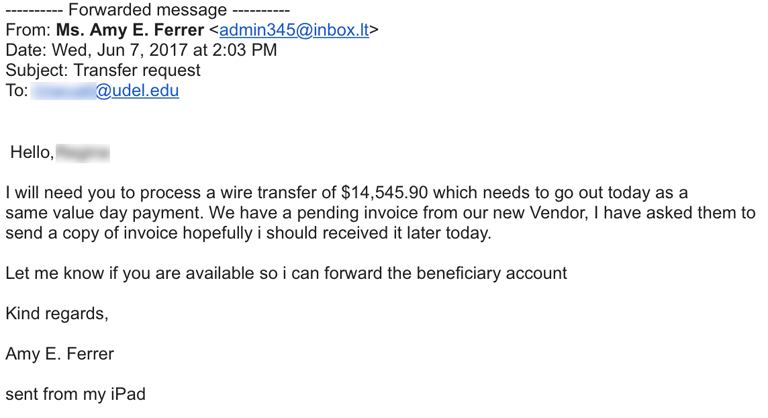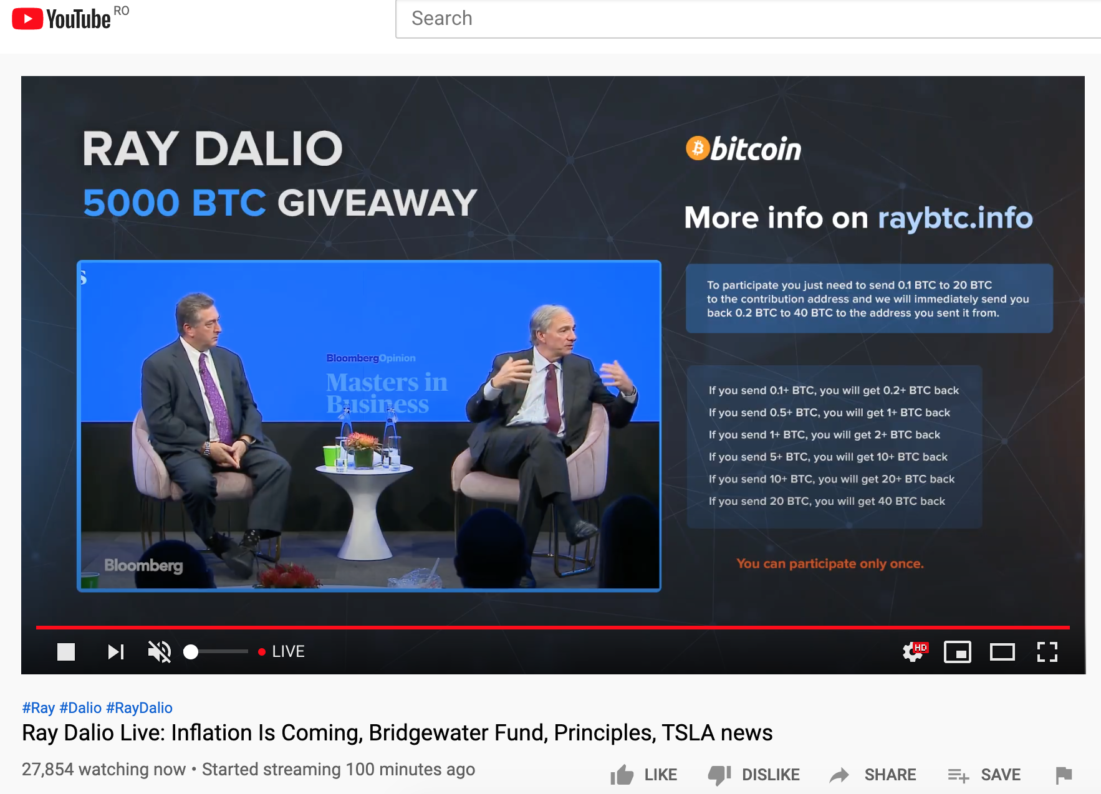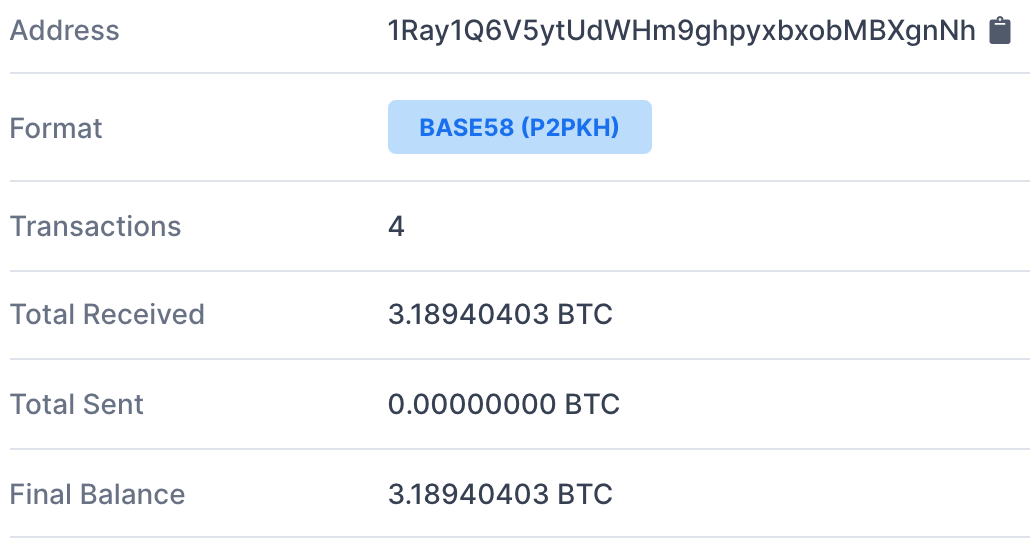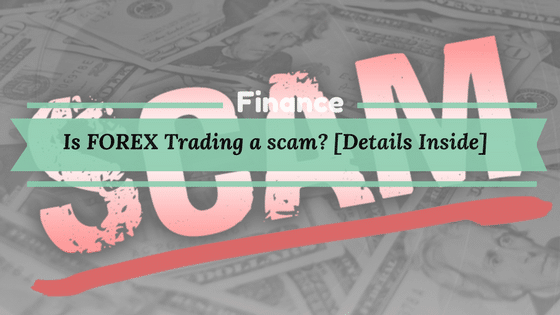Now and then, I hear from people who have lost some of their hard-earned money to a scammer. In some cases, the losses are small. In others, they are life-changing, and the emotional scar is priceless. So, I thought I’d do my bit and list a few scamming techniques I’ve encountered online.
I aim to describe the tactics employed so that you can more easily identify real from fake opportunities. There are too many variants to list, but I think you will understand what makes up a scam and how to avoid getting duped.
Before we dig in, I’ve got one request. Please share this article with a friend so they don’t get scammed. Thanks! At the end of this article, I’ve got a Q&A style guide to help you determine real from fake, so skip ahead if you are stuck for time. Here it goes.
1. Paying to get a job
If you are ever asked to shell out some cash to get a job or make money, run for the hills because this is a scam. Investing in yourself to become more marketable is one thing, payment in exchange for a job is an entirely different story.
Competition is high in the current economic climate, and desperation is rife. These scammers are preying on the weak and vulnerable. To be honest, it’s pretty disgusting to take advantage of people who lost their jobs during the COVID pandemic or the following recession. So even if you have bills to pay and are desperately looking for a job, analyze everything and don't spend your hard money just because something looks too good to be true and you don't want to miss it.
Once again, don’t be caught out! Here is a short guide released by FTC on how to avoid job scams:
How Paying To Get A Job SCAM Works:
- The client lists a project or job and then requires you to pay an ‘Admin’ fee. No self-respecting employer will ask you to pay anything upfront to get a job.
- A job opening is listed on a website or sent to you via email. Usually, the actual application details are absent, and you will be asked to pay a small fee to access them. There are hundreds of legitimate job boards that are free to use for applicants. Businesses or companies pay these agencies to list job adverts, so there is no need for a job site to ask you for any remuneration.
- An agent lists a job opening on behalf of an honest company and then asks for a fee to guarantee that you get the job. Some may call this bribery. I call it a scam. The companies are real, but the job advert is generally for a fake position.
- Someone advertises software that will magically increase your chances of finding a job. A convincing website with customer testimonials, cool statistics, and graphics usually accompanies this. Don’t fall for it. All the software does, is scrape job websites and provide you with the listings. Nothing more than that! You can do this on your own. It’s called browsing the internet for jobs.
- An intermediary (pretending to be an agency) will ask you to pay for the job application form….SCAM
- If I come across more types of paying to get a job, I’ll list them here.
The general rule you can apply here is never to pay anything to get a job.
2. Paid training before you work
This is similar to the scam above; I needed to list it separately because it can be compelling, and often people are duped into wasting their money. The way this works is that instead of asking you to pay to get the job (which is slightly more obvious), the scammer will tell you that your job is guaranteed, but first, you need to pay for a short training course that will prepare you for that specific job. Don’t fall for it! No legitimate company is going to ask you to do this.
Remember, you are providing a service as an employee, so you should not be out of pocket. You should be the one getting paid, not the other way around.
Digital Marketing Jobs for Tomorrow
More often than not, you receive mediocre training at best, and those wonderful job opportunities almost always disappear. You will probably never hear from them again, no matter how often you ask for a refund.
3. Interviews that get the job done
Be very wary about excessively long and drawn-out interviews. A few freelancers informed me that some prospective clients would ask for extensive interview tasks. After a bit of digging, they found that the interview task was, in fact, the work that the client needed to be done.
Many good freelancing websites have rules against this practice, but not everyone follows them. This can be hard to avoid, especially if you are eager to get that job. If it happens, try and communicate your thoughts with the client. Otherwise, report it to the agency/website.
I generally work because I ask interview questions to understand the freelancer's mindset, communication ability, understanding of the job requirements, and a little about skills. I’m testing whether or not they have read the job description. I try and keep it very generic and not too excessive.
If it is a long-term position or a large project, I generally invite a few select candidates to attend a longer paid interview. This allows me to properly evaluate the freelancer using an intensive, real-world task, which usually lasts a few days and is not out of pocket. So basically, if an employer asks too much in an interview, and it sounds more like a job than an interview, it probably is. So, walk away or report it.
4. Freelance Sites that require membership fees
Good freelance facilitating sites are generally funded by taking a percentage of the project or hourly rate. This pays all their bills and then some. So if a freelance website asks you to pay for a membership, find somewhere else to go.
Some legitimate agency-style websites (albeit small ones) sometimes employ this practice. They maintain regular clients and ‘pro’ clients. You only get access to the pro clients if you pay an extra fee.
Best 10 Outsourcing Websites to Hire and get hired
Remember, this is only providing access to the job adverts. There is no guarantee of getting that job. So, it is not worth the risk or the money. Not so much a SCAM, but it is deceptive and not worth it.
5. Non-paying clients or websites
This is a difficult one to avoid. Many websites advertise projects, employ freelancers, and don’t fork out payment when the job is completed. A handful of you reading this must have experienced it at some point in your career. It is indeed a tough thing to avoid.
The only thing that you can do is to ensure your communications are all done via email (so you can defend it in court if it goes that far) and do your research about the website. Investigate what others say (Google the website name to try and find any negative reviews). But even then, separating the good from the bad is still difficult.
You can also look at the site's reputation, sometimes indicated by its Alexa ranking. The higher the ranking (1 being the highest), the more popular the website, the less chance you will be out of pocket.
6. Disappearing clients
When I first started outsourcing with sites like Freelancer.com or UpWork.com, I encountered people who had a fear that I will not pay. I took offense, to be honest. I’m a legitimate business, so you SHOULD trust me, I ignorantly thought to myself.
It turns out that these freelancers had a legitimate fear. Digging around and talking to a few people, it quickly became apparent that some evil people try to get work done for free.
This works as follows:
- A client that lists a job
- Interviews applicants
- Agree’s pay and commences with the job
- The work is delivered
- You never hear from that client again
- Payment methods are canceled, and even the website you worked through loses out.
So what do you do if you are working with a client with no prior history?
Well, there are a few things. For one, ensure that you use reputable services that protect your contractors. I’d recommend oDesk, Freelancer & 99Designs as a start. The second thing that you can do is ask for a deposit. I don’t like this option; as a business and I never go for it, you can always ask. The third thing you can do is deliver previews until full payment. e.g., If you are developing software, you can deliver the compiled application and only release the source code once full payment is made. If you are a graphic designer, you can initially deliver a low res image and then full PSD upon receipt of payment.
Another thing you can do is agree with milestone payments. Divide the project into smaller modules that can be delivered and paid for individually. Once paid, you start working towards the next milestone. Any reputable client will be happy with this. There are various ways to try and mitigate the risk of not being paid.
You can be creative with how you deliver your work, just be upfront with your client and agree on these rules ahead of time so that you don’t pi$$ them off. The last thing you want is an irate client.
7. Online Trading
This is one of the more believable and convincing scams out there. I almost fell for this one! Many people are showing you videos of how they trade online (Especially Binary Options). They will even show you ‘live’ evidence of their income via balance statements, actual software usage, etc.
They don’t tell you that the data and applications they show you are Dummy or Demo accounts. That’s right, fake accounts. If you play around long enough with a Demo account, you will at some point make some (dummy) money. These are to be avoided at all costs.

SEC Warning on Binary Options Trading
Legitimate trading is a very risky business – it’s an ‘educated’ gamble. The general rule is that if you want to trade, then do it with money; you are willing to lose because, more often than not, you WILL LOSE.
Binary Options videos and tutorials can be very, very convincing. Don’t fall for it. It is a gross misrepresentation of any potential gain. People who make these videos simply make a commission by referring you to that trading service.
8. Work-at-home mom scams
You read emotionally appealing stories of a mom who spends just a few hours a day online and making tens of thousands of dollars. SCAM!
The cheques they show you are fake. The work is not real. What they are selling you is information on how the scam works. You are taught how to scam other people. That’s basically how the scam works. It does sound enticing, but please don’t fall into that trap. It is illegal, and you can go to jail.
9. No Contract Quick Hire Jobs
Legitimate agencies and companies will generally have contractual agreements between them (the client) and you (the freelancer). Facilitating agencies will have generic terms and conditions that legally and contractually bind all jobs between clients and freelancers.
If you are offered a job without a contract, defined set of terms and conditions, or deliverables, with explicit earnings statements, then be very wary. It is probably a scam. The other scam indicator is the lack of an interview. I have never employed anyone for any job (no matter how simple) without an interview.
10. Instant Message Interviews
I’ve seen this happen a few times, and it is a scam that is usually done by scammers trying to lure in targets and freelancers who want to lure in clients.
Client Version: It starts out with an attractive-looking job advert. There is no voice-based interview; it is all done via instant message. I understand that English is not everyone's first language, and not everyone is a good communicator. Still, I am automatically wearier when someone opts out of a voice interview instead of instant messaging.
For one, I am not really sure who I am engaging with. Seeing or hearing someone builds a bit more trust, and most genuine employers will be happy to go through a voice or video interview. After you accept the position, they will either get you to pay some fee or maybe one of those disappearing clients. So be wary about clients who don’t want to communicate properly.
Freelance Version: In this scenario, the tables are turned. It’s not so much a scam but a time-waster. Suppose you do employ this tactic. Please stop; it is actually losing your clients.
You have freelancers who will apply to job adverts with attractive, low-cost proposals. They then want to engage with you via an instant message service. They are happy to chat with you about the job, the description, and the deliverables (All of these are already stated in the initial job description, by the way). At the end of the interview/discussion, which they generally fair really well at, they will tell you that the price has increased.
This, for me, is deceptive; they had all the details initially but decided to put in a fake offer to get my attention. So, what I’ve learned as a client is that if the offer is too good to be true, it usually is. I ignore most low offers. And in most cases, you get what you pay for! In other cases, it is an annoying lure. I don’t mind paying higher prices but don’t want to be deceived at first.
11. No official Contact details
Scammers generally don’t like to be contacted outside of the scam (physically or electronically). If you see a great job offer or promise of income asking you to pay a little first, without any contact information like address, email, telephone, etc., then again…Scam alert!
12. Bank details, Social Security, ID, Passport number
If anyone asks you for your bank details, Social Security, or any other personal number, walk away. The only time you need to hand over your bank details is to an HR department or an official company so that they can pay you. You would never need to provide your banking details to get a job or make money online.
Most of these scams are email-based. If you need to receive payment, use an official, reliable method that protects your details, e.g., PayPal. This scam works because some people (who really have nothing better to do) sit in an internet cafe, sending thousands of generic emails to a list of recipients they either stole or bought somewhere. The email content varies and can sometimes be quite convincing and official-looking.
Example1: ‘There is a parcel currently with customs in SomeCountry, and all you need to do is pay the customs fees or provide ID information to release it.’ They usually pad that email to make it seem like an essential and precious package. Believe it or not, some people expect packages and will pay or provide the requested details.
Customs won’t email you. They will generally send you a letter because they know the delivery address. If you expect valuable packages by post or courier, check the tracking information before paying anything. You can even call customs yourself – find their official number first using their official website in your country.
Example2: ‘You have won a prize worth $1000. You must confirm your Social Security (or other national ID numbers) and address to claim the prize.’ This again is a SCAM. You should not need to do this. These are mainly email-based scams, but I’ve also seen them as popups on some dodgy-looking websites.
13. Never-ending webpage
This one is widespread, and I’ve come across loads of these in my time online. These are single-page websites that go on forever in an attempt to bombard you with almost every piece of information, statistic, and testimonial that may convince you to buy their product at the end. And of course, that product will miraculously make you loads of money.
More often than not, those ‘products’ are simply teaching you to do the same thing. It takes you through creating that single-page website and how to sell the same ebook or resource. It is a SCAM. Unfortunately, a few legitimate websites do this too. I’d ignore all of them. You are better off that way.
14. No Experience Necessary Jobs
This is another interesting one. No experience jobs seem to be a common way to entice someone that is just entering the market. These generally don’t exist, and you really need to be wary.
The ‘client’ will most likely not pay you anything and, in most cases, probably wants you to pay for something first. I must also say that there are a few legitimate No Experience jobs out there by reputable companies. They will train you at their own cost and give you an opportunity. They won’t ask you for money, and the process is quite transparent. The difference is that you will need to be interviewed.
15. Wire funds on behalf of an individual or company
Here’s the gig: ‘I need some money to move to your country. I will give you 10% as a fee for your inconvenience. I will transfer $20 000 000 into your account, and then you must transfer $18 000 000 into my account.’ Sounds great, right? You are helping someone out? WRONG. The only thing they are after again is your bank details. So be very wary! They can use this information to make payments, set up direct debits, etc.

Wire transfer Fraud Example
I received the following email the other day: ‘Hi, Dee. Sorry to get in touch like this. I’ve just arrived in Italy, and my bags were stolen. Everything was taken, my passport, wallet, the works. Please can you wire me some money via XXXX XXXXX XXXX so I can get to the embassy to sort it out?’
This came from my friend's actual email address. It had been hacked into, probably because of a leaked or poor password. Don’t be fooled.
16. Poorly written job advert or email.
One of the easiest ways to identify a scam email or job advert is to read it. I am basing this on what I have received in English, but it applies to all languages. Certain parts of the world are known to have a larger number of full-time scammers.
Some of these countries are not natively English speaking, which probably means that the scammers are not native English speakers. Poor grammar is the result.
Look at the sentence construction, spelling errors, etc. If you pick out more than one, there is a strong possibility that it is a SCAM! This not only applies to English scams. It applies to all languages. I’m just using it as an example because English is my first language.
You may be targeted in your own native tongue. Companies and other official establishments have quite a drawn-out process before making anything public – like an email, Facebook post, tweet, etc. So generally (and I do say generally), the correspondence quality will be much higher.
17. Free or Fake email
Also, look at where the email or job advert is coming from. Look at the sender's information. Is it a generic Gmail or Yahoo account? A lot of the time, these are the sort of accounts that scammers use. Not always from a custom domain such as @gadgitech.com.
Whenever I employ someone, I make it a point to do it via email from my official company domain (@gadgitech.com). Some legitimate companies are using free email addresses. So, do your research. With a reduction in hosting and domain costs, I hope that any reputable company uses a custom domain.
18. Get Rich Quick
There is no such thing! Unless you are lucky enough to win the lottery.
Here are some of the Get Rich Quick proposals I’ve come across:
- Work only a few hours a day.
- High Yield Investment schemes. Careful! Careful! Careful!
- Stock Exchange secrets, tips, and tricks. This can sometimes border on insider trading and is ILLEGAL.
19. Pyramid Schemes
Yet again, one of these too-good-to-be-true scams. Primarily when you see ‘published’ (fake) paycheques (checks for you US guys). The way this works is that you pay to get into a scheme. Generally, there is no product or service. You pay the person who invited you into the scheme. That person gets a cut, and so does the person who referred them, and so on.
The only person who makes any money is who started the scheme. Now, don’t go out and start one just yet! For one, it will annoy me. And secondly, it is now illegal in a lot of countries. So don’t be scammed into joining one, and please don’t start one. I’d rather you read this blog from your home rather than a jail cell library (if they even have internet access).
Here is a video on a recently uncovered and shut down by the SEC Ponzi scheme:
According to Investor.gov, a website created by the SEC, here are the warning signs of a PROXY scheme:
The warning signs of a PROXY scheme
- High returns with little or no risk. Every investment carries some risk, and investments yielding higher returns typically involve more risk. Be highly suspicious of any “guaranteed” investment opportunity.
- Overly consistent returns. Investments tend to go up and down over time. Be skeptical about an investment that regularly generates positive returns regardless of overall market conditions.
- Unregistered investments. Ponzi schemes typically involve investments not registered with the SEC or state regulators. Registration is important because it informs investors about its management, products, services, and finances.
- Unlicensed sellers. Federal and state securities laws require investment professionals and firms to be licensed or registered. Most Ponzi schemes involve unlicensed individuals or unregistered firms.
- Secretive, complex strategies. Avoid investments if you don’t understand them or can’t get complete information about them.
- Issues with paperwork. Account statement errors may indicate that funds are not being invested as promised.
- Difficulty receiving payments. Be suspicious if you don’t receive a payment or have difficulty cashing out. Ponzi scheme promoters sometimes try to prevent participants from cashing out by offering even higher returns for staying put.
20. Someone offers to buy your website or domain name
I didn’t know about this one until a few months back. I received an email from a domain/website broker that informed me that a wealthy Chinese businessman was purchasing related domains. He had $100000 to spend on about 5 websites and wanted to know what I would sell mine for. At first, I thought WOW. JACKPOT! This was my honest to god true reaction. Two minutes later, my sensible side kicked in. So I researched the guy a bit. They sent it from an official domain brokering company, official logos. Everything looked great and spotted on. BUT, more research revealed that they were, in fact, a website evaluation service.
Buying your Website/Domain SCAM
- You get this too good to be true introduction email and offer.
- You make contact and say you are interested and tell them your price. Say $20000.
- They respond by saying, ‘No problem. The price sounds good. But our client wants to ensure it is worth what you are asking.
- They then tell you that you can easily verify its value by paying Company XXXX for a website evaluation. (A few hundred bucks).
- You pay, they say, sorry, after evaluating your website it is worth $10 instead of $20000.
- You are out of pocket a few hundred bucks! You can’t ask for your money back because you legitimately asked and paid for an evaluation service that was provided.
- You never hear from them or the wealthy Chinese businessman ever again.
- They live happily ever after and try to dupe the next person into doing the same.
- I’ll repeat it; you just lost a few hundred bucks.
- The End!
21. Premium phone numbers
Jobs are sometimes advertised, with the only method to apply is to call the provided number. In almost every case, that call-in number is a premium phone number. 1-900 numbers in the US. 0871- in the UK. It varies from country to country. But that is the general scam.
The scammer will try and keep you on the line for as long as possible. The longer you are on the line, the more money they take from you. There is no real job. It’s all a scam!
22. Small task now, a big task later
Some unscrupulous clients will try and gain your trust and then screw you over later. So don’t drop your guard.
It works something like this:
- The client employs you to do a small quick job that pays just a few dollars.
- The same client then employs you for a few different projects, all paying just a few dollars.
- You start to trust the client.
- That client then proposes a nice large project. You think GREAT!. I’m going to make some real money.
- You work your hardest and provide the best quality work and deliver it to your client.
- You don’t get paid and never hear from your client again. They disappear from the face of the planet.
The takeaway here is not to trust anyone! Especially in business. Ensure you have legitimate contracts throughout. Try to protect yourself as best you can. Use legitimate freelance websites and use your common sense.
23. Get Rich Quick Investments (High Yield)
Like trading, you will find investment opportunities that promise a high yield with minimal investment. GUARANTEED! THERE IS NO SUCH THING Investments will go up and down, and the higher the potential profit, the higher the risk of you losing everything.
The only loser is you, so invest wisely and use reputable methods like your bank or other regulated financial authority. In most countries, they are legally obliged to give you a proper risk assessment for any investment.
These scammers are getting clever and using the latest marketing opportunities, including social media networks like YouTube. For instance, check in the image below how they use a recording of the reputable hedge fund manager, Ray Dalio, to promote their scam.
While the video is playing in a frame, they promise to send them double to anyone who sends Bitcoin to their address. Of course, this is not happening, and all the funds sent are lost forever.  Cryptocurrencies Scam Using Ray Dalio's name.
Cryptocurrencies Scam Using Ray Dalio's name.
These scammers advertised the video to get in YouTube trends (the Ray Dalio name helped a lot) and got 27,000 live people watching. After several hours, I checked their Bitcoin wallet and saw they've got 4 transactions, receiving 3,20 BTC today, which is a little over $34000.  The Bitcoin Wallet of the Scammers
The Bitcoin Wallet of the Scammers
24. Social Commenter
Some clients hire people to manage their social profiles, which is a legitimate job. But others out there will ask you for a small sign-up fee to start commenting on social media such as Facebook, Twitter, Google Plus, etc. This fee is generally minimal, $1-$5.
They advertise these jobs with high-paying rates like $30-$40/hr. Don’t be fooled. These scammers set impossibly high targets like thousands of comments per hour, and if you don’t meet these targets, you don’t get paid. So, in the end, they won twice. You pay them the small startup fee, and they get comments. But you don't get paid because you didn’t make the target.
25. Google Profits
Some legitimate people have shown off their Google Adsense profits, and some initial ones were real. Unfortunately, almost everyone after that showcases fake cheques and account balances. They then promise to teach you how to set up your Adsense account and website to do the same. But yet again, this is taking money out of your pocket unnecessarily.
Adsense is Free to use, and you can create a free or paid-for website. Plenty of excellent free tutorials exist on how to do it. It will only take a matter of minutes to set up once approved by Google. The scam is very similar to this, where you are told that you can earn up to $25/hr simply by placing links on websites. These scammers use fake names or try to masquerade as legitimate entrepreneurs. Sounds too good to be true?.. It is.
Take Away
Most of these scams are generally easy to avoid, but those in a desperate situation can quickly be taken advantage of.
Here is a quick checklist to help you determine whether it is a scam. If the answer is ‘Yes’ to any of the questions below, it is most likely a scam and needs to be avoided.
- Does it sound too good to be true?
- Did I get the email out of the blue from someone I don’t know?
- Is their email address a free email?
- Is the email from someone I know but doesn’t sound right?
- Do I have to pay anything to get started (Admin Fee, training course, software, startup kit)?
- Do I have to provide my financial details (or passport, Id, etc.) to start?
- Does this work or scheme guarantee overnight success?
- Was I contacted using an instant messaging service?
- I was not able to find the company details by simply searching Google
- Do I have to send money somewhere?
- Do I have to accept money on behalf of someone?
- Are there numerous grammar or spelling errors, or is the wording is not fluent?
- Does the website have a low Alexa ranking?
- Did you find negative information/reviews by simply searching the web?
Unfortunately, there are a few legitimate businesses and companies out there that also employ these tactics. They are few and far between, and hopefully, they will change, but be very careful. More often than not, you go with your gut.
There is no such thing as easy money. Work hard for what you have and cherish it. Don’t give it away to all the scammers out there.
Conclusion
This by no means, is a definitive list of every type of scam that is going on. But it gives you a feel for what people are doing. Every day there is something new! Scammers are very creative. I wish they would use that creativity in other areas.
Hopefully, this post helps you more easily recognize the characteristics of a scam, making all the variants identifiable. Be safe at working online. I’ll ask one more time. Suppose there is one good deed you want to do today. Please share this with a friend so that they don’t get duped!




















Recommended Comments
There are no comments to display.
Create an account or sign in to comment
You need to be a member in order to leave a comment
Create an account
Sign up for a new account in our community. It's easy!
Register a new accountSign in
Already have an account? Sign in here.
Sign In Now